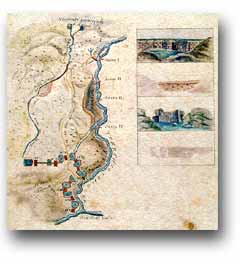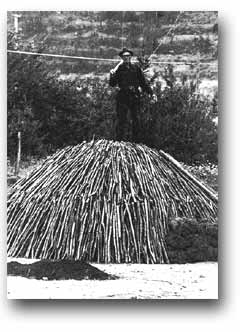Rural culture, rural crafts and the safeguard for the old trades
The culture of a rural land is the result of a process which, in the time, has given the local population the chance to shape their own world. In rural development, the valorization of local property is pointed not only at resident population, but each project has a wide cultural dimension. The ARSIA Agency for rural development operates in the Regione Toscana so as to revivify and maintain the typical features of Tuscany: its history, culture, landscape, the environment, characteristics and quality of its products. |  |
 | During the last few decades the number of farmers in Tuscany has considerably diminished, but there is now new interest in the development of the rural areas, where the farmers play a central role in the protection of the rural environment. Tuscany has maintained largely its traditions and rural callings. Its landscape has become precious and beautiful as a consequence of the work of numberless generations of farmers and craftsmen, and it is now a universe of small rural villages, still intact and lively witness as to man's work and its effects on land, landscape and architecture. |
The Tuscan rural craft, symbol and pride of a local culture, has often led to productions characterized by a quality, which goes beyond the classical distinction "art" and "craft". For many reasons (the immutability of products, the absence of craftsman replacement, etc.), some of these activities, which used to increase craft value, run the risk of being abandoned. They can now count on the commitment of the Regione Toscana for help in projects aimed at revaluing them. |  |
 | The regional law "Safeguard and valorization of the rural activities that risk extinction" is aimed at valorizing the old trades. Its aim is to maintain, as best as possible, the tradition of a handicraftsworkship (handicraftsmanship) that can transform even the poorest resources. This project of local development aims at activating and increasing the valorization of the culture and the environmental resources, in order to make them a means of development for a local economy in difficulty. Nevertheless, this is a course that, first of all, has to involve whole population of a given region. |
